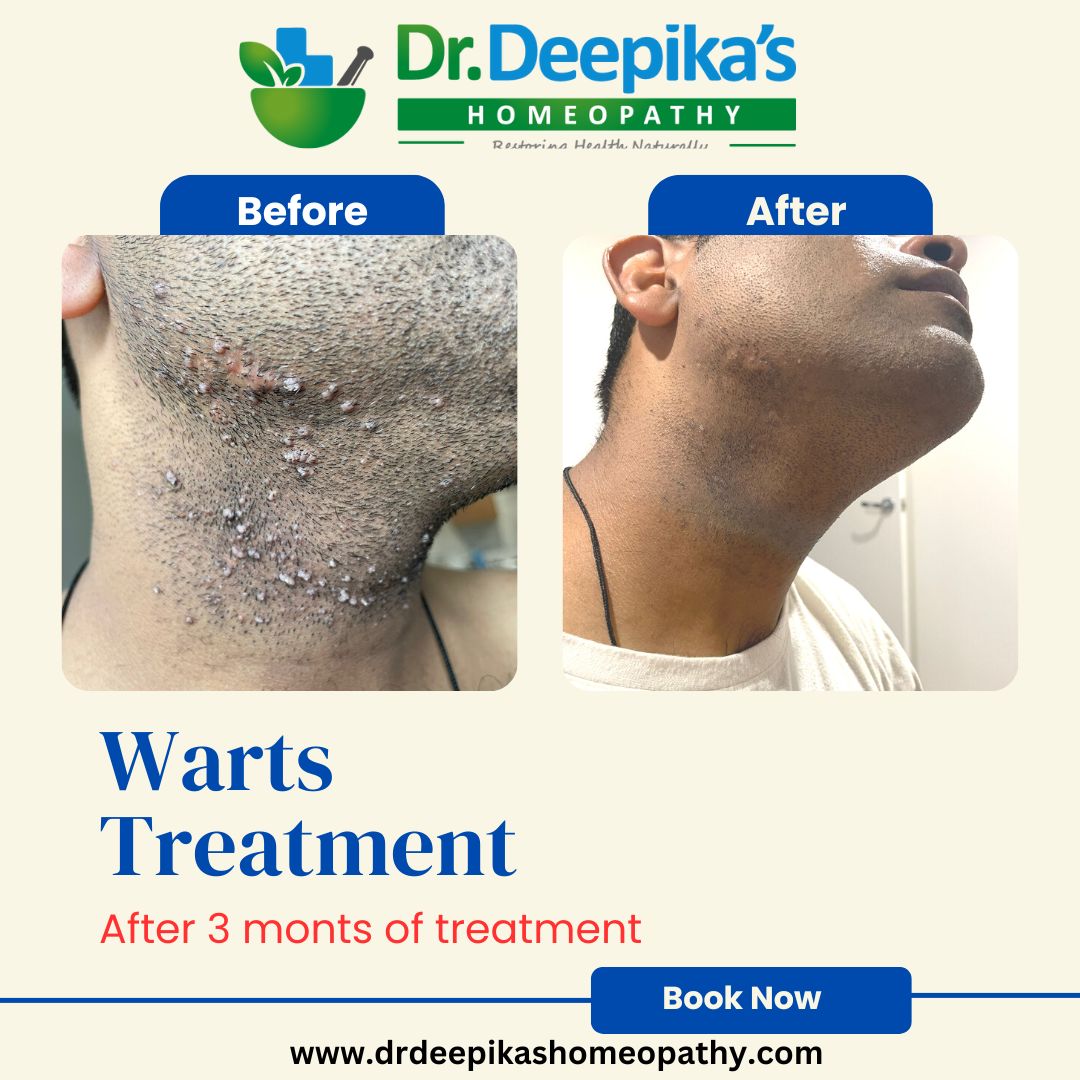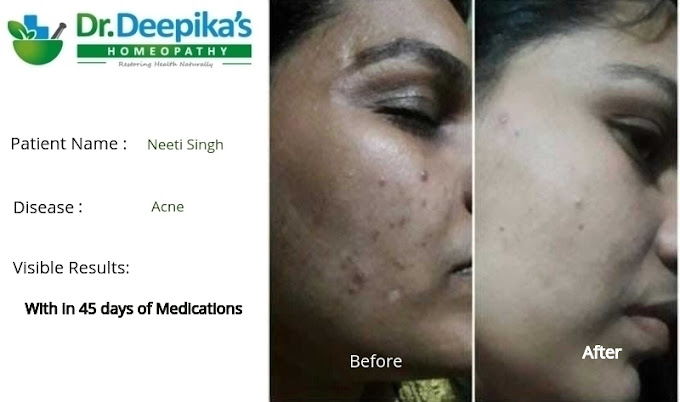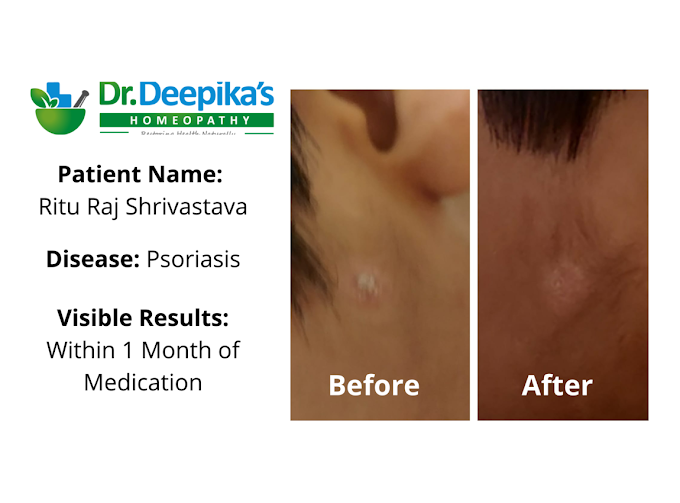Child Immunity Treatment at Dr. Deepika's Homeopathy: Strengthening Your Child's Defense Naturally
Child Immunity Treatment Overview:
Childhood is a crucial time for the development and strengthening of the immune system. Dr. Deepika’s Homeopathy offers reliable and natural solutions to boost your child’s immunity. By addressing the underlying causes, providing individualized care, and promoting overall wellness, Dr. Deepika helps children boost your child’s immunity and build a robust immune system.
Facts About Child Immunity:
Immune System Development: The immune system of a child develops gradually over time. During childhood, exposure to various germs and illnesses helps the immune system recognize and respond to potential threats.
Importance of a Strong Immune System: A strong immune system helps protect children from common illnesses and infections. It also plays a vital role in overall health and well-being.
A strong immune system is essential for the overall health and well-being of children. Dr. Deepika’s Homeopathy offers reliable and natural solutions to boost child immunity. With a patient-centered approach, Dr. Deepika focuses on understanding the underlying causes, providing personalized homeopathic remedies, and promoting overall wellness with homeopathy medicine for immunity in children. By strengthening the immune system, children can enjoy improved resistance to infections, better overall health, and enhanced quality of life. With Dr. Deepika’s expertise in homeopathy, parents can trust in a safe and natural approach to support their child’s immune system.
Disclaimer:
Always consult a doctor for any questions or concerns regarding your skin health and treatment options.
Types of Child Immunity Concerns:
Recurrent Infections: Some children are prone to experiencing frequent infections. This includes common ailments such as colds, coughs, recurring ear infections, and respiratory illnesses. These repeated infections may indicate an underlying issue with the child’s immune system that requires further investigation and management.
Allergies: Allergies occur when the immune system overreacts to substances that are typically harmless, such as pollen, pet dander, or certain foods. This overreaction can lead to various allergic responses, including hay fever, asthma attacks, and eczema. Managing allergies often involves identifying triggers and implementing strategies to avoid these allergens.
Weak Immune Response: Some children may exhibit a weak immune response, characterized by an increased susceptibility to infections and illnesses. This could be due to genetic factors, inadequate nutrition, or previous medical treatments. Children with a weak immune system might require interventions to boost their immunity, such as supplements, a balanced diet, and preventive care.
Autoimmune Disorders: In some cases, children may develop autoimmune disorders where the immune system mistakenly attacks healthy body cells. Conditions like juvenile arthritis or type 1 diabetes are examples of autoimmune responses that require specific medical attention and ongoing management.
Immunodeficiency Disorders: Certain children are born with or develop immunodeficiency disorders, where one or more components of the immune system are deficient. These disorders, such as Primary Immunodeficiency, leave children more vulnerable to infections that would normally not be as severe. Diagnosis and treatment typically involve immune-boosting therapies and sometimes lifelong management.
Symptoms of Child Immunity Concerns:
Recurrent Infections: Some children are prone to experiencing frequent infections. This includes common ailments such as colds, coughs, recurring ear infections, and respiratory illnesses. These repeated infections may indicate an underlying issue with the child’s immune system that requires further investigation and management.
Allergies: Allergies occur when the immune system overreacts to substances that are typically harmless, such as pollen, pet dander, or certain foods. This overreaction can lead to various allergic responses, including hay fever, asthma attacks, and eczema. Managing allergies often involves identifying triggers and implementing strategies to avoid these allergens.
Weak Immune Response: Some children may exhibit a weak immune response, characterized by an increased susceptibility to infections and illnesses. This could be due to genetic factors, inadequate nutrition, or previous medical treatments. Children with a weak immune system might require interventions to boost their immunity, such as supplements, a balanced diet, and preventive care.
Autoimmune Disorders: In some cases, children may develop autoimmune disorders where the immune system mistakenly attacks healthy body cells. Conditions like juvenile arthritis or type 1 diabetes are examples of autoimmune responses that require specific medical attention and ongoing management.
Immunodeficiency Disorders: Certain children are born with or develop immunodeficiency disorders, where one or more components of the immune system are deficient. These disorders, such as Primary Immunodeficiency, leave children more vulnerable to infections that would normally not be as severe. Diagnosis and treatment typically involve immune-boosting therapies and sometimes lifelong management.
Diagnosis of Child Immunity Concerns:
Medical History Assessment: Dr. Deepika conducts an in-depth review of the child’s medical history, including any chronic illnesses, infections, or hospitalizations. This discussion also covers family health history, as genetics can play a significant role in immunity concerns. Understanding the child’s past health events, vaccinations, and responses to previous treatments provides critical insights into their immune system’s functionality.
Physical Examination: A comprehensive physical examination is performed to assess the child’s current health status. This includes monitoring growth patterns, checking for physical signs of immune deficiencies (such as frequent infections, poor wound healing, or growth delays), and observing any manifestations of allergic reactions which might indicate immune hypersensitivity.
Diagnostic Tests: Depending on the findings from the history and physical exam, Dr. Deepika might suggest specific diagnostic tests. These could include complete blood counts (CBC) to evaluate white blood cells, immunoglobulin tests to assess antibody levels, or advanced immunological tests to detect autoimmune disorders. Allergy testing might also be conducted to identify triggers that could be affecting the child’s immune system.
Nutritional Assessment: Nutrition plays a crucial role in the functioning of the immune system. Dr. Deepika may evaluate the child’s dietary habits to ensure they are receiving adequate nutrients essential for a robust immune system. This could involve dietary recommendations or supplements to address any deficiencies.
Consultation with Specialists: If the initial tests indicate complex immune issues, Dr. Deepika may refer the child to an immunologist for further specialized assessments and advanced management strategies.
Homeopathic Treatment for Child Immunity:
Dr. Deepika’s Homeopathy offers a natural and holistic approach to boosting child immunity. Homeopathic remedies, derived from natural substances, are safe, gentle, and non-toxic. The treatment focuses on addressing the underlying causes of immunity concerns, strengthening the immune system, and promoting overall wellness. The homeopathic treatment may include:
Individualized Assessment: Dr. Deepika conducts a detailed assessment, considering the child’s medical history, specific symptoms, triggers, and overall constitution. This helps in understanding the unique characteristics of the child’s immunity concerns and tailoring the treatment approach accordingly.
Customized Remedies: Based on the assessment, Dr. Deepika prescribes personalized homeopathic remedies that match the child’s symptoms and address the underlying causes of the immunity concerns. These remedies stimulate the body’s natural healing response, enhance immune function, and restore balance.
Nutritional Guidance: Dr. Deepika may provide guidance on a balanced diet, nutritional supplements, and lifestyle modifications that support immune health. This includes incorporating immune-boosting foods and avoiding triggers that may weaken the immune system.
Preventive Measures: Along with treatment, Dr. Deepika may offer advice on preventive measures to minimizethe risk of infections and strengthen the child’s immune system. This may include maintaining good hygiene practices, ensuring adequate sleep, regular exercise, and reducing stress.
Follow-up and Monitoring: Regular follow-up consultations are conducted to monitor the progress of the treatment, assess the child’s immune response, and make any necessary adjustments to the remedy prescription. Dr. Deepika’s expertise ensures that the treatment plan is tailored to each child’s specific needs.



EXCELLENTTrustindex verifies that the original source of the review is Google. GoodPosted onTrustindex verifies that the original source of the review is Google. Docters are very kind and help full Providing the best results and cure Really happy to share thi reviewPosted onTrustindex verifies that the original source of the review is Google. I approached her for my sinus treatment which I am having for years and she cured 90% of it in just 3 sittings and her approach is something I haven't seen with any of the doctor I met before, she is really good.Thank you so much doctorPosted onTrustindex verifies that the original source of the review is Google. She is best homeopathic doctor at sector 62, I was suffering from chickenpox , smallpox issue.. I got relieved from her medicine in 7 days.. Thanks doctorPosted onTrustindex verifies that the original source of the review is Google. What a miracle!! I contact Dr. Deepika's homeopathy for the treatment of external hemorrhoids. Result was unbelievable, withing 7 days it cured. Thanks for wonderful service.Posted onTrustindex verifies that the original source of the review is Google. Dr deepika Best doctor for kidney stone in noida.. You will get garateed relief within 30 to 45 days of medicine.. I got relief within 1 -2 doses only.







